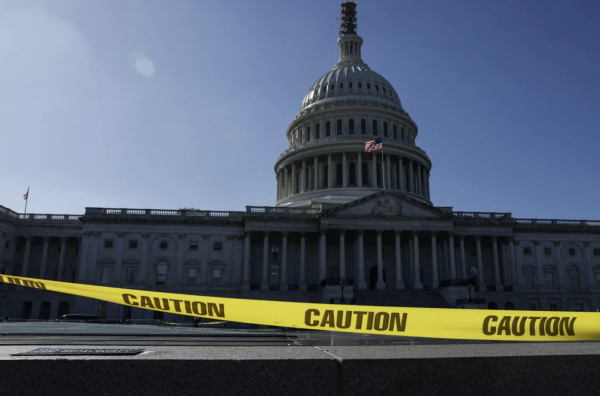Fanning the Flames
When the Brazilian President Jair Bolsonaro won the popular vote in October 2018, the nation’s status as the world’s fourth largest democracy began to waver. The sixth most populous country in the world was under internal attack from demagoguery. Bolsonaro abused the process of democracy to secure a pervasive grip on Brazilian politics, and through appealing specifically to the conservative elites and impoverished working class, he played on the fears of income and food sustainability while directly criticizing the seemingly abstract concept of climate change. It was this emphasis on tangible fear that drove his campaign forward. An average Brazilian farmer would be unable to witness the undeniable effects of climate change, yet they could see their livelihoods disappear under recessions. However, if Bolsonaro really does hope to serve the people of Brazil, why is he not working to save our world from imminent catastrophe? It only makes sense that national politicians would hope to protect their constituents through working together on a global scale to help us avoid extinction, right? Yet, the case of Bolsonaro helps define this global movement toward vilifying this established trend and, in my eyes, rising international skepticism over an issue so paramount. His case shows how right-wing populism becomes a global crisis that places us all at risk.
Bolsonaro represented the rebirth of Brazil’s nationalist far-right. Serving in the military dictatorship that ruled Brazil until 1985, he has continued to boast about the previous system’s merits. “We want a Brazil that is similar to the one we had 40, 50 years ago,” said Bolsonaro in reference to this past authoritarian regime. He further began to work toward this vision by appointing Hamilton Mourãu, a retired military general, to the vice presidency.
Beyond simply calling for the reinstatement of the dictatorship, Bolsonaro’s rhetoric heavily mirrors that of its leaders and administration. For one, he agreed with the military regime’s tortures and executions of members of leftist opposition groups and called for a renewal of the purges of dissidents. “These red outlaws will be banished from our homeland,” said Bolsonaro, “It will be a cleanup the likes of which has never been seen in Brazilian history”.
One consequence of Bolsonaro’s nationalist stance on running the nation is the rise in deforestation and destruction of the Amazon Rainforest. The rainforest acts as one of the world’s largest carbon sinks, storing immense amounts of organic matter and carbon dioxide from the atmosphere. If this ability to trap atmospheric carbon disappears and if the stored contents are released through combustion or decay, the rate of climate change could further accelerate. Bolsonaro welcomes the deforestation industries and agribusinesses that hope to expand further into this fertile environment. Under his government, according to the National Institute for Space Research, 39,194 fires have been detected this year, marking a 77% increase from the same period in 2018 (Guardian).
Bolsonaro further refused to initially accept international aid and allow involvement in the fires. When global governments at the G7 conference offered $22 million to combat the spread of fires, Bolsonaro rebuked them, calling for an apology and concessions before negotiations could begin. When Brazil finally accepted $12 from Britain, the government spokesperson underscored Brazil’s rights over the rainforest. “The government stresses that all external support is welcome, provided the decision over how those resources are employed is ours,” said Otávio Rêgo Barros, “Our sovereignty is non-negotiable”.
Further adding fuel to the fire, Bolsonaro, like other far-right leaders, remains a strong critic of climate change. He and his Environment Minister Ricardo Salles have removed the leadership of several major climate change and deforestation monitoring agencies. In one such instance, 21 of the 27 state superintendents that oversee and track deforestation were fired in one day (PSMag). If this same trajectory continues, the Amazon could pass the point of self-sustainability, creating a spreading chain reaction that would kill the forest in its entirety.
The example of Brazil is only a starting point. Seen in Hungary, Italy and America, this global shift to the right and populism that helped bring it about is the current greatest threat to our environment. These promises of revitalizing the economy through rebuilding dwindling industries such as coal mining in America and logging in Brazil lead to a gutting of regulations on the environment with no real change for the workers involved but with massive benefits for the elites that have claims to the market. In both Brazil and America, there is a deceptive illusion given to the working class that these populists have their interests in mind, that by reducing government involvement in the economy, growth can be stimulated once more. Yet, currently, Brazil’s economy still remains damaged and America’s is stagnating, all at the expense of the rainforest and natural wildlife preserves respectively. Also, it seems unfair to equate economic profit to global sustainability, and on this note, it is unbelievable to think that we are trading our planet’s life away to those hoping to secure more income. Even moderate parties and impartial actors in this issue remain complicit to a degree, and thus I believe that the only way to proceed forward with positive change is a unified movement of the masses. We have seen the impacts that these collective demonstrations can bring in the past, and since leaders derive their power from the people they administer, the people have the ultimate ability to bring about societal change. In Brazil, these movements have already been successful as calls for impeachment are surfacing and popular pushback is expanding, and yet, they need to grow even stronger. We, as inhabitants of this world, have an inclination to maintain the status quo, but that inclination only goes so far. We must remain more skeptical of promises aimed at preserving the fossil fuel industry, we must remain more vigilant to elect leaders who represent a common hope for survival, we must not let leaders like Bolsonaro reap the economic benefits of pollution because, frankly, we are running out of time.




